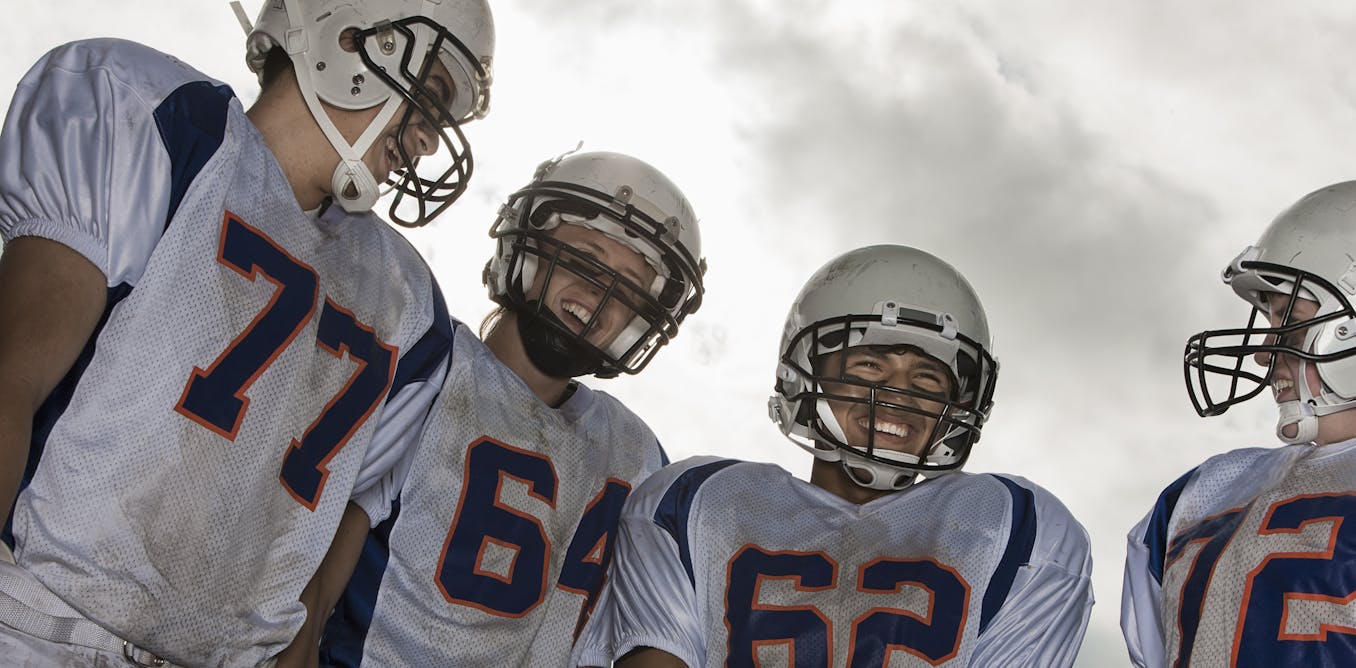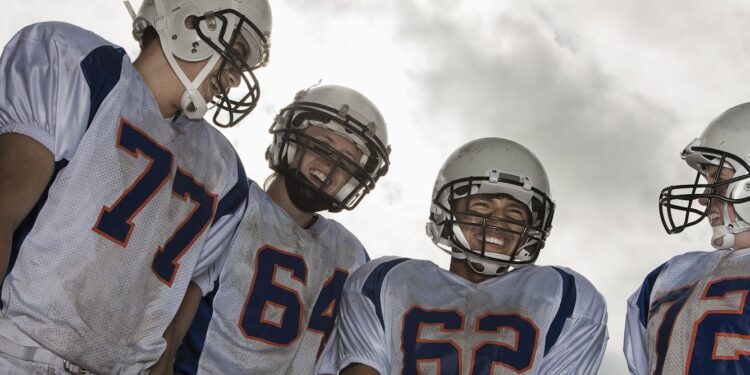
On July 28, 2025, a 27-year-old gunman entered a New York City office building that is home to the National Football League’s headquarters. He shot and killed four people and injured one other before killing himself.
In a note found in his wallet, he claimed he had chronic traumatic encephalopathy, or CTE, a degenerative brain condition believed to develop from repeated traumatic brain injuries. He asked experts to study his brain.
CTE has received much attention over the past two decades as multiple NFL players have been diagnosed with the condition after their deaths. The 2015 movie “Concussion,” about a forensic pathologist named Dr. Bennet Omalu who documented the first case of CTE in an NFL player, also highlighted the issue.
The gunman in the New York City shooting played high school football, but he did not play professionally. It is not known whether he had CTE.
I’m a clinical psychologist who studies mental health issues and their relationship to physical illness. Although people generally associate CTE with professional athletes, a growing body of research, including my own work, shows that adolescents and young adult athletes experience traumatic brain injuries that can have both short-term and long-term effects on mental health. In my view, young players and their families, as well as coaches, should pay attention to these emerging risks.
Table of Contents
From traumatic brain injuries to CTE
At least 55 million people worldwide are thought to experience a traumatic brain injury each year. The actual number may be higher, as many brain injuries are never diagnosed or treated.
Some people with a brain injury recover quickly. Others do not. Over half of people with a brain injury reported mental health symptoms one year later. These include difficulties concentrating, memory problems and irritability, as well as physical concerns such as recurrent headaches and difficulties with balance. Many people who sustain a traumatic brain injury also report difficulties with anxiety, depression and substance misuse as they are recovering. Some report thoughts about ending their lives or suicide attempts.
Although the link between traumatic brain injuries and CTE is still being studied, many experts believe that the condition is caused not by a single, severe blow to the head but by repeated trauma to the head over time.
It is not uncommon for former competitive athletes across a range of contact sports to believe they may have CTE – not only because they remember the injuries or being diagnosed with a concussion, but also because they experience many of the cognitive symptoms that affect people with traumatic brain injuries and sometimes misuse alcohol, pain medications or other substances to cope with them.
However, there’s no way for someone to get a diagnosis for the condition while they are experiencing these symptoms. There is currently no test for CTE. Doctors generally diagnose it after an autopsy.
Repeated brain injuries in youth sports
The focus on CTE has brought greater interest in the effects of traumatic brain injuries in general. Such injuries are common not only in professional athletes but also in adolescents and young adults who play sports. They are seen frequently in military veterans as well.
In a study published in March 2025, my colleagues and I assessed more than 500 varsity and club sport athletes. We found that 75% said they had experienced a head injury before starting college. Almost 40% reported being diagnosed with at least one concussion, and just over half of those athletes experienced a loss of consciousness.
We also found that student athletes who had experienced head injuries were much more likely to be diagnosed with at least one psychiatric disorder in their lifetime. They were more likely to drink alcohol excessively and have a substance use disorder in their history. Greater symptoms of an alcohol use disorder were associated with having their first head injury at an earlier age, as well as having more head injuries, diagnosed concussions and losing consciousness from those injuries.
These troubling observations highlight the often overlooked mental health effects of head injuries in adolescents and young adults. Our study aligns with others that have found a relationship between sports-related traumatic brain injuries and mental health symptoms – and it is among the first to look not only at self-reported symptoms but also at formal psychiatric diagnoses.
How exactly these cases might relate to CTE is unknown, but there are hints of a link: Researchers examining the records of 152 former contact sport athletes who died before age 30 identified signs of CTE in the brains of 40% of them. Family members described mental health symptoms in the majority of them, and alcohol and substance misuse were reported in approximately one-third.
Increasing safeguards for brain health in young athletes
While head injuries in youth sports were once met with a shrug, youth sports leagues are increasingly paying attention to the issue.
Studies suggest that limiting the amount of physical contact in preseason training or between games can reduce young players’ head injury risks. Coaches of contact sports such as football and soccer often receive training on identifying the signs and symptoms of head injuries and are given strategies to manage them.
Athletic trainers, routinely available at many high school sporting events, are involved in sporting events for younger children as well. As first responders to athletic injuries, they are trained to assess symptoms of head injuries and can provide guidance, as part of a medical team, on when an athlete can return to play. Athletic trainers also may be well positioned to observe some of the mental health symptoms commonly seen after head injuries.
Following a head injury, parents and guardians should also keep an eye on their athlete. Changes in mood or behavior after a head injury warrant a referral to a neurologist or mental health professional for additional assessment and treatment.
























